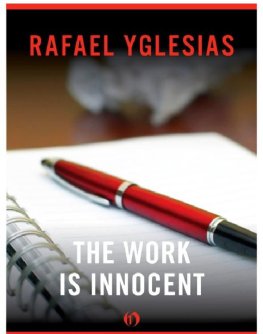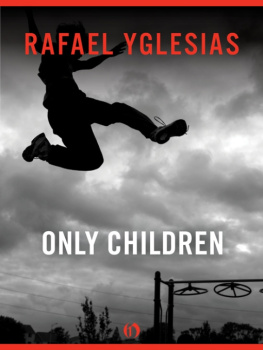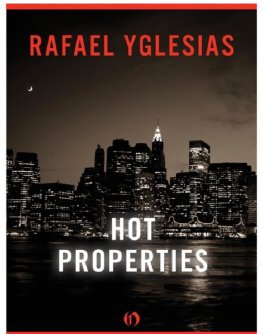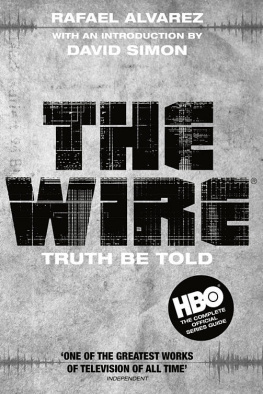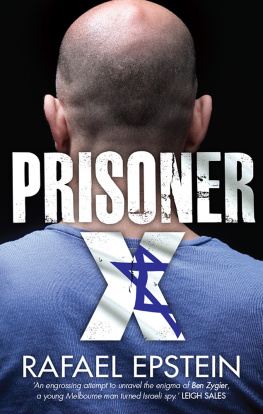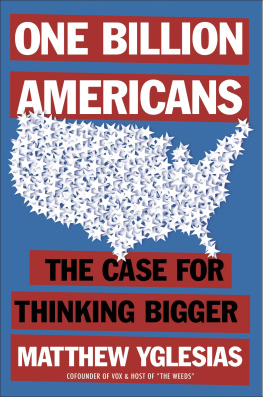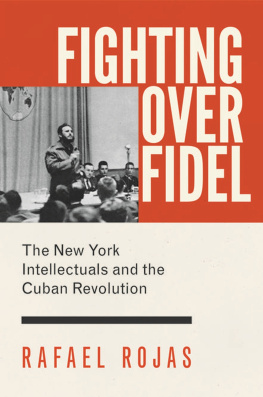
The Work is Innocent
by
Rafael Yglesias
Throughout his later boyhood and into his earlier manhood the youth is always striving away from his home and the things of it. With whatever pain he suffers through the longing for them, he must deny them; he must cleave to the world and the things of it; that is his fate, that is the condition of all achievement and advancement for him. He will be many times contemptible, he will be mean and selfish upon occasion; but he can scarcely otherwise be a man; the great matter for him is to keep some place in his soul where he shall be ashamed. Let him not be afraid of being too unsparing in his memories; the instinct of self-preservation will safeguard him from showing himself quite as he was. No man, unless he puts on the mask of fiction, can show his real face or the will behind it. For this reason the only real biographies are the novels, and every novel, if it is honest, will be the autobiography of the author and the biography of the reader.
William Dean HowellsYears of My Youth
He called them the Dark Years. And pictured them thus: he would vomit out his intimate feelings to each person he met (imagining it was his soul he revealed), was quickly humiliated by having done so, and then spat where his vomit lay. All this, and the poor victim was never allowed a response.
But his judgment was too harsh. His compulsion to confess was not like vomiting, it was like masturbation. The humiliation was real, though it came from the mistake of believing his confession was disgusting; only the anger is accurately described. But this image encouraged him to continue the destructive cycle, since it was romantic. A wonderfully violent character creating altars of vomit and saliva, rather than the truth: a perverse boy producing pools of watery-white liquid.
The previous spring, when Richard Goodman was thrown out of a New York prep school, he begged his parents to allow him to live in Vermont with his sister, brother-in-law, and niece, and go to school there. He was afraid of being knifed in a New York public high school. Since his parents had decided to move to Vermont permanently, they figured Richard might as well start early in the high school where he would have to finish his last three years.
He had managed to reach the Christmas holidays without cutting, but in January his addiction to Balzac had resulted in five days of staying home. His parents had warned that failure would mean an immediate summons to New York, so Richard knew what awaited him when his brother-in-law, John, answered the phone and told Richard to come and speak with his father.
The entire affair seemed so ritualized and predictable that it assumed theatrical proportions causing Richard to imagine that his slow movements to the phone were observed by an audience impressed with the contempt he showed for his fate.
The kitchen had only one pale yellow light, and it added to the dreariness of the scene. His father was terse, telling him to get on the next flight to New York. Richard asked if he might stay for the weekend and was given permission. That ended the call, not unlike one to a travel agency. Yet after hanging up, an explosion of sweat betrayed his calm and Richard lost himself in that sickly light, harassed and nauseated by the countrysides loud buzzing silence.
After waiting for either Naomi, his sister, or John to call out asking what had happened, but getting no such question, Richard sought them out. They were on the living-room couch, Johns arm around Naomi. She looked at Richard with concern, love, and confidence, but Johns eyes asked: Can you survive this?
Well, the man has called, Richard said. I must go.
Really? John asked.
I go Monday. Dad said you should pay for my ticket and hell send you a check for it.
Theyre going to have you go to school there? Naomi asked.
Didnt say a word about it.
Im surprised they did it, John said.
Oh, come on. They had to. Richard smiled at both of them to communicate his awareness of every move his parents might make. He looked through the doorway to his bedroom and saw the typewriter with page ninety-eight of his novel in it. He realized that his calm came from it. Thats gonna get me out of this, he said.
Naomi looked pleased. What page are you on?
I think Im almost halfway done.
Did you tell them about it? John asked.
No. I told you I wasnt going to tell them about it until its done. I mean its gonna seem crazy enough to them when I present it finished.
I dont think its gonna seem crazy, Naomi said. Its really good.
No, no. I dont mean that. I mean letting me drop out of school because of my writing it will seem crazy. Richard watched them. They had read his novel almost page by page since he had begun it three months before and they had told him it was terrific. But he never tired of checking. You know I think Mom and Dad are gonna like it, he said, playing the coquette.
John nodded. Oh yeah. I think itll really give them pause.
Richard was delighted. Thats what I wanna give them. Pause. He laughed. You know, if I can pull them inside my life. That should be heavy for them. For the world.
John made a noise. Uh. Little Richards gettin carried away with himself.
Well, I have to feel that way, right? I mean I couldnt write if I thought about it like its a cute hobby.
No, thats cool, John said earnestly. But the worlds gonna give you a little fight on that. Theyre not just gonna concede it to you.
Naomi disengaged herself from John. But thats not important, is it? she asked. I mean youre doing what you want to do. Most people cant, you know? She looked at Richard plaintively. It doesnt matter what the world says.
Oh yes, it does! He smiled briefly to impress her with the importance of being realistic. Unless the world relates to it I wont be published or make money. This didnt seem to convince Naomi. I mean how do you go on writing when youre broke?
Oh, thats such bullshit. Im sorry but thats nonsense. Plenty of writers have had a job while writing. Most of them have. Havent they?
Richard laughed. First you say so, then you ask. Tolstoy didnt, Dickens didnt, Balzac, Dostoevsky, Eliot
Richard, you cant bring up those people all the time. I mean today. There are very few writers who earn a living
Yeah, they have a job. They teach a fuckin English course for thirty-thousand a year.
I dont mean those people. Thats not who you want to be.
Id like to, John said.
No, I dont want to be them, Richard said. But thats unusual.
Richard! Why are you being so silly? Naomi was flushed. You cant expect Mom and Dad to support you while you write.
Who said I expected them to?
Then youll have to get a job. And it wont be in a college. She was suddenly sorry for her vehemence. Right? I mean. You know what I mean.
Okay, so I have to get a lousy job. Whats the point?
Theres no point!
Richard looked at John, exasperated. Then what are you saying to me, he yelled.
Whoa, John said. Everybody be cool.
Oh, God! Naomi jumped up from the couch. Whats the matter with everybody? She was naturally thin and nervous, and anger seemed too strong a feeling for her body to support. I just mean that you shouldnt believe that bullshit that you have to be pampered in order to write. You can write holding a lousy job.
The baby wailed from the other room. Naomi glanced in its direction fiercely. Ill handle it, John said. He moved past her, but she stopped him by taking his arm. No, she said, and Richard was amazed by the tones she put in the word: anger, frustration, apology, and love. Richards niece upset him with desperate, choking cries. Naomi stood still, her eyes blank and staring. She scratched an eyebrow thoughtfully until she seemed calmer and then went inside.
Next page
